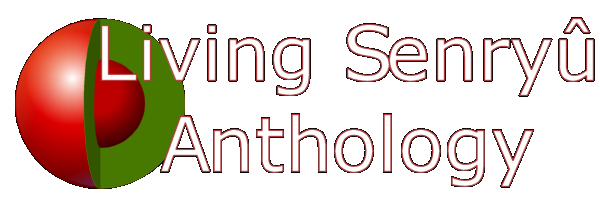The Haiku Society of America states that:
- A senryu is a poem, structurally similar to haiku, that highlights the foibles of human nature, usually in a humorous or satiric way.
- A senryu may or may not contain a season word or a grammatical break. Some Japanese senryu seem more like aphorisms, and some modern senryu in both Japanese and English avoid humor, becoming more like serious short poems in haiku form. There are also "borderline haiku/senryu", which may seem like one or the other, depending on how the reader interprets them. Many so-called "haiku" in English are really senryu.
Professor Haruo Shirane has noticed that "Maybe close to half of English-language haiku, including many of the best ones, are in fact a form of senryu."1
Modern senryu, both inside and outside of Japan, draw on poetic tools, themes and techniques shared with longer forms of modern poetry and that do not adapt so well with what is valued as haiku. The following table identifies some key differences that we note between haiku and senryu:
| Haiku |
Senryu |
| connects the immediate to the universal via kigo or keyword | human-creature-centered |
| communicates by suggestion with effective use of silence, juxtaposition of images and disjunction | communicates explicitly via metaphor, simile and other figures of speech |
| observes changes that natural processes (uncreated by the human-creature) have on that which exists, up to and including the human creature | interprets the human experience within the context of the universe as 'mastered' by the human-creature, including language itself |
With Alan Pizzarelli, one may wonder how many senryu have been accepted over the years for publication "under the aegis of haiku" but "will not be recognized as such so long as they are touted as 'innovative haiku' rather than approaches toward modern senryu."2
It is Living Senryu Anthology's goal to rediscover and anthologise these and other published senryu as well as to publish previously unpublished senryu submitted to and accepted by our editorial team.
1 Beyond the Haiku Moment: Basho, Buson & Modern Haiku Myths - Modern Haiku, XXXI:1 winter-spring 2000).
2 Modern Senryu - a paper by Alan Pizzarelli first read at the Haiku Canada 1987 Weekend, and first printed in the Haiku Canada September 1987 Newsletter.
